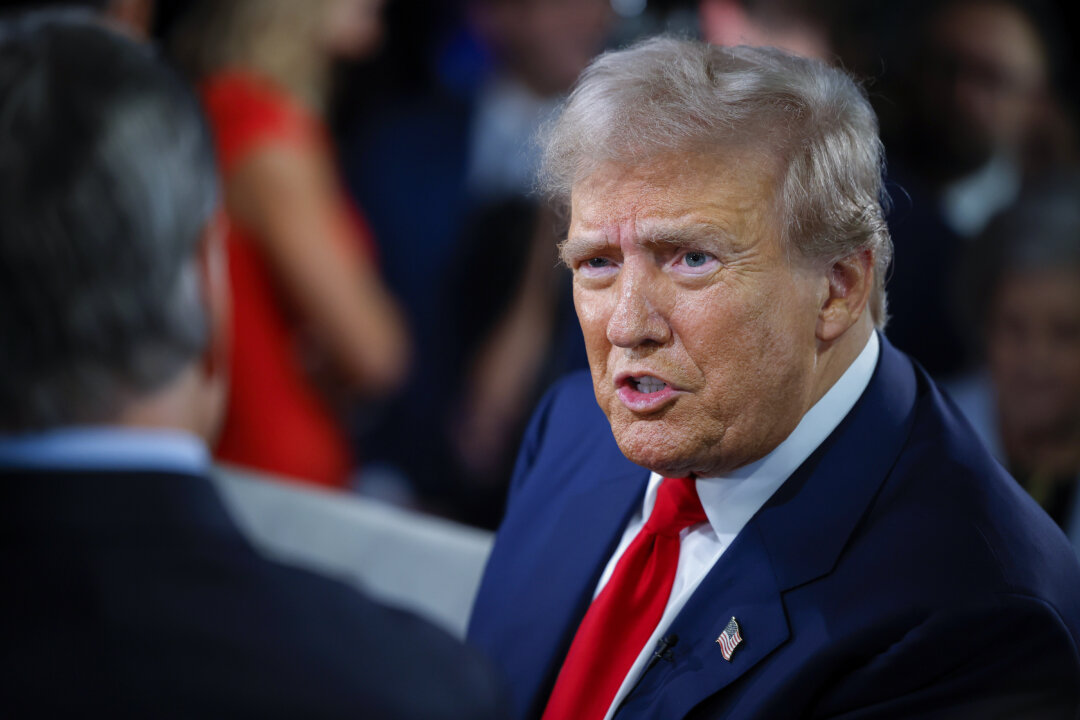The former president lost his appeal over Justice Juan Merchan’s gag order, as well as an emergency request to stay a federal court’s decision.
Former President Donald Trump encountered roadblocks on Sept. 12 in his attempts to challenge rulings related to his criminal case in New York.
The state’s highest court rejected his appeal of New York Supreme Court Justice Juan Merchan’s gag order.
A brief order by the New York Court of Appeals was issued in the morning and stated that “no substantial constitutional question is directly involved.”
Hours later, the U.S. Court of Appeals for the Second Circuit denied Trump’s request for emergency relief in his attempt to relocate the case to federal court.
Federal district Judge Alvin Hellerstein had denied that request and Trump followed by asking the Second Circuit to halt Hellerstein’s denial.
Trump has argued that the Supreme Court’s decision in Trump v. United States, which held that presidents enjoy certain levels of immunity from criminal prosecution, and Merchan’s conduct raised federal questions that should be addressed in federal court.
He has also derided Merchan’s gag order as an unconstitutional infringement on his right to free speech.
Steven Cheung, a spokesperson for Trump’s campaign, said the former president will “continue to fight against the unconstitutional Witch Hunts and Gag Orders.”
The orders were issued two days after Trump’s debate with Vice President Kamala Harris, during which he alleged that the justice system had been weaponized against him.
“I’m winning most of them, and I’ll win the rest on appeal,” he said after Harris referenced his various cases, along with his upcoming Nov. 26 sentencing with Merchan.Trump also alleged that the Justice Department (DOJ) had been “weaponized” and noted how Florida Judge Aileen Cannon dismissed its classified documents case against him.
Special counsel Jack Smith has appealed against that decision to the U.S. Court of Appeals for the 11th Circuit, raising the possibility that the case could restart.
Also on Sept. 12, Attorney General Merrick Garland appeared to rebuff Trump in a speech defending his employees and describing the DOJ as impartial.
The Second Circuit has yet to rule on Trump’s request to move Merchan’s case to federal court.
Merchan updated his court’s schedule last week by moving the sentencing, previously scheduled for Sept. 18, to Nov. 26.
He said he wouldn’t rule on Trump’s presidential immunity claims until after the election.
In a letter on Sept. 9, Trump’s attorneys urged the Second Circuit to delay proceedings.
“Because of the significance of the presidential immunity doctrine, the federal government and the public share an interest in that outcome—even if these novel and complex issues are to be addressed after the 2024 presidential election,” his attorneys wrote.
“For example, President Trump’s ability to seek appellate review of the district court’s ruling would be irreparably harmed, in the absence of a stay, because Justice Merchant could move forward with sentencing and a ‘judgment of conviction’ … before this appeal is resolved.”
A judgment of conviction refers to the court formally declaring Trump guilty.
In May, a jury found him guilty of 34 felony counts of falsifying documents.
Georgia prosecutor Fani Willis’s case against Trump faced additional setbacks on Sept. 12 as Fulton County Superior Court Judge Scott McAfee dismissed several charges in the indictment brought by Willis.
That case, which focuses on Trump’s reactions to the 2020 presidential election, is set to go before the state’s court of appeals in December with consideration of whether Willis should be disqualified from the prosecution.
A similar, federal-level case is trudging along in Washington, where D.C. Judge Tanya Chutkan laid out a new schedule for continuing the pre-trial process, which was delayed for months as the Supreme Court weighed Trump’s immunity appeal.
Reuters contributed to this report.

